Amid profound changes in the global security architecture and the rapid strengthening of Asia's role in international processes, the Conference on Interaction and Confidence Building Measures in Asia (CICA) is entering a key phase of its institutional development. The transformation of CICA into a full-fledged international organization is no longer just a declarative goal, but expresses the collective political will of the participating countries.
Azerbaijan is one of the main drivers of this transformation. During its chairmanship, emphasis has been placed not only on institutional reforms but also on promoting transport connectivity, environmental partnership, and youth diplomacy. It is in Baku in October 2026 that the historic CICA summit is planned, where the adoption of the Organization's Charter is expected.
The secretary general of the association, Kairat Sarybay, told Report in an interview about the strategic goals of the future transformation, the potential for interregional cooperation, key topics of the Baku summit, and the growing international recognition of CICA, as well as the challenges facing the organization.
We present the interview to our readers:
- What are the key goals of the upcoming CICA summit to be held in Azerbaijan in 2026? What strategic decisions are planned to be made, and will the issue of institutional transformation of the association be considered?
- The upcoming CICA summit in Azerbaijan will be an important milestone in the development of our association and will open a new chapter in the history of Pan-Asian dialogue.
The evolution of CICA is taking place against the backdrop of two large-scale and complementary processes: on the one hand, we are witnessing massive geopolitical and economic changes that are transforming the global security architecture and emphasizing the increasing role of Asia. On the other hand, there is a progressive institutional development of CICA itself, aimed at transformation into a full-fledged international organization.
The Azerbaijani Chairmanship of CICA comes with an ambitious but concrete program based on three strategic priorities: institutional transformation, intensification of sectoral interaction based on confidence-building measures, and expansion of cooperation with international and regional structures.
The culmination of this process and the key outcome of the summit in Baku should be the adoption of the CICA Charter, which will consolidate the new legal status of the organization. I would like to remind you that this idea received political support at the sixth summit in Astana in 2022. Today, regular expert meetings are held under the auspices of the Azerbaijani Chairmanship, and we hope that the draft Charter will be ready for approval by the time of the summit in the second half of October 2026.
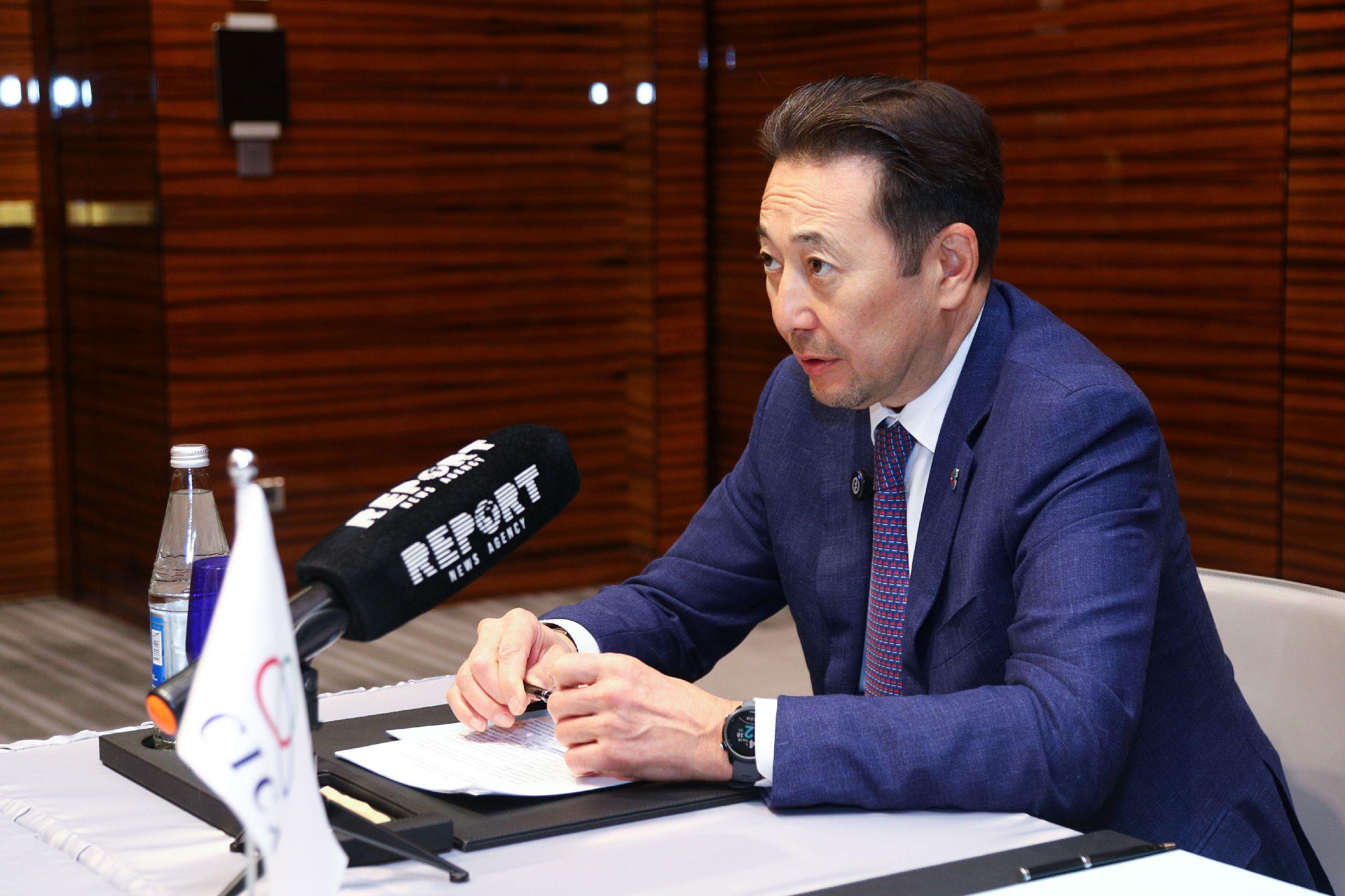
Work is being conducted in parallel on expanding the institutional base of CICA. Among them is the CICA Financial Summit, designed to become a permanent platform for financial and economic dialogue between member states.
Work also continues on the initiatives put forward during the sixth CICA Summit by the president of Kazakhstan, Kassym-Jomart Tokayev, including the creation of the Council for Sustainable Connectivity, aimed at developing transport and logistics links in the region, and the establishment of the CICA Environmental Council, which will coordinate joint efforts on the climate agenda.
The latter received additional momentum after the first-ever CICA Ministerial Conference on Environmental Issues was held in 2024, which laid a solid foundation for the development of environmental cooperation within the organization. I am convinced that Azerbaijan's successful Chairmanship of COP29 in November 2024 will play a leading role in advancing the environmental agenda within CICA.
I would also like to highlight Azerbaijan's new initiative - the establishment of the CICA Women's Council. This body is designed to become a consultative platform for exchanging experiences and expanding women's participation in socio-economic and political life across Asia.
Intensive consultations on the establishment of new structures are currently ongoing. The consideration of several of these initiatives is planned during the informal meeting of the CICA Council of Foreign Ministers, which will take place on the sidelines of the UN General Assembly in New York in September 2025.
- How do you assess Azerbaijan's role in CICA, and in which areas does the country show the most activity?
- Azerbaijan has established itself as a responsible and proactive member of CICA, consistently contributing to the development of the association. Azerbaijan is particularly active in its role as coordinator in the field of developing safe and efficient transport corridors. Given its strategic geographical location and efforts to form a modern transit and logistics hub between East and West, North and South, Azerbaijan's contribution to strengthening regional connectivity and transport integration takes on intercontinental significance.
One of the concrete steps was Azerbaijan's presentation of an updated Concept for the implementation of confidence-building measures in the field of developing safe and efficient transport corridors for 2025-2027, which is currently under consideration by member states. This document sets guidelines for strengthening the transport architecture of all of Asia and serves as a continuation of Azerbaijan's efforts, which previously presented a similar Concept for 2022-2023.
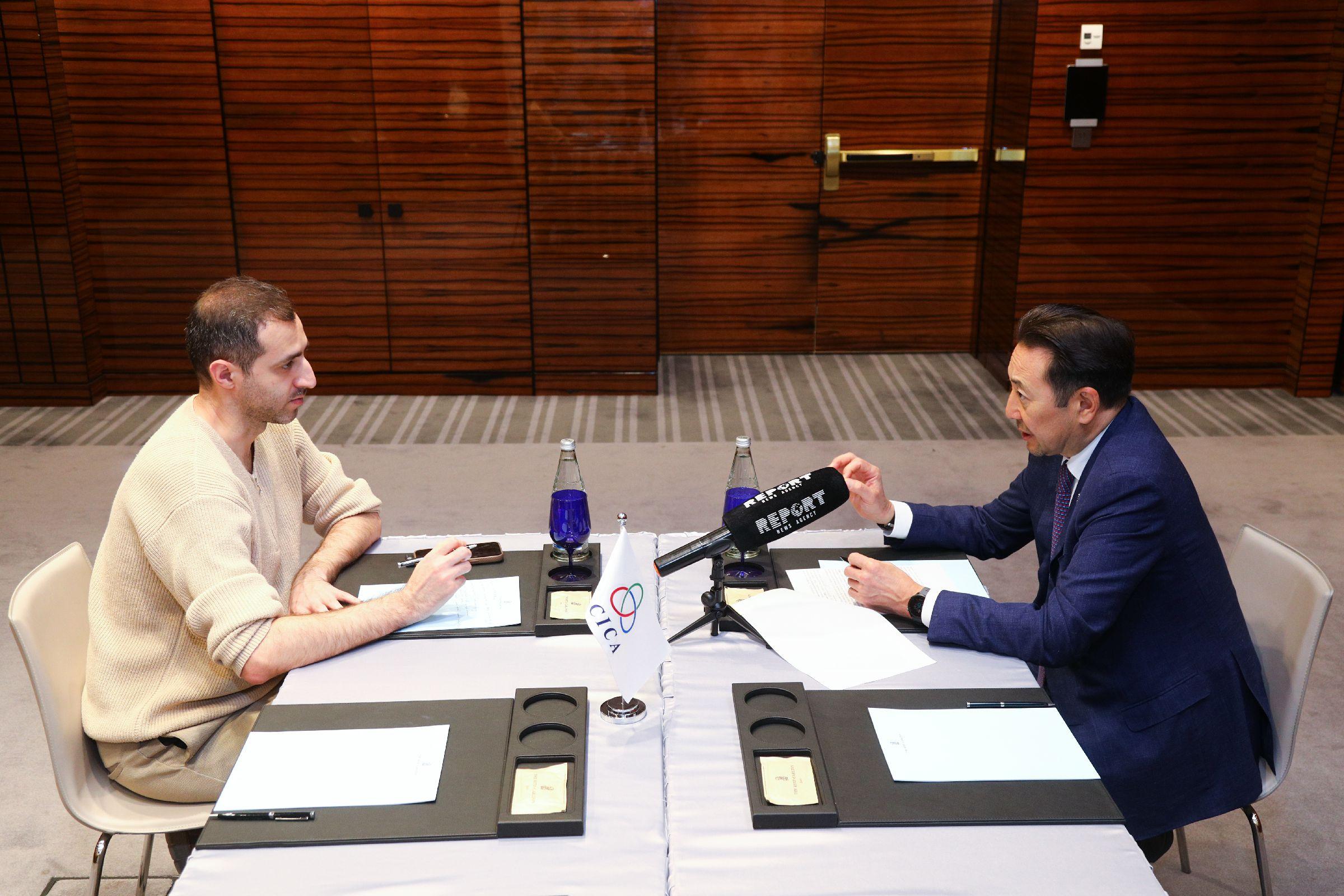
In addition, a meeting of the heads of leading ports from CICA member countries is planned. This will create an additional platform for deepening dialogue on maritime logistics, infrastructure integration, and sustainable trade routes.
In November, Baku will also host a forum on digital transformation and innovation for CICA member states. The event is organized by the Agency for Innovation and Digital Development under the Ministry of Digital Development and Transport of Azerbaijan.
Thus, Azerbaijan's role in CICA today is characterized by broad thematic focus, depth, and practical orientation.
- Which areas of cooperation within CICA does Azerbaijan consider promising? What initiatives are being implemented during its Chairmanship?
- Azerbaijan's Chairmanship of CICA in 2025 includes a packed agenda: about 20 events are planned in key areas of cooperation. Among them are the development of transport and communication infrastructure, climate agenda, support for small and medium-sized enterprises, as well as enhancing the work of the CICA Business Council, in which Azerbaijan exercises chairmanship at a high level.
A Business Council meeting and business forum have already been held, gathering more than 200 representatives of business circles to discuss current topics—from the digital transformation of SMEs to their inclusion in global supply chains.
Special attention should be paid to the block of initiatives focused on youth and volunteering. Azerbaijan has taken the lead of the CICA Youth Council and intends to use its potential to promote the youth agenda. The Council meeting is scheduled for October of this year in Baku. In addition, Azerbaijan also heads a new advisory body - the CICA Leading Universities Partnership Network, designed to stimulate academic and scientific exchanges between participating countries.
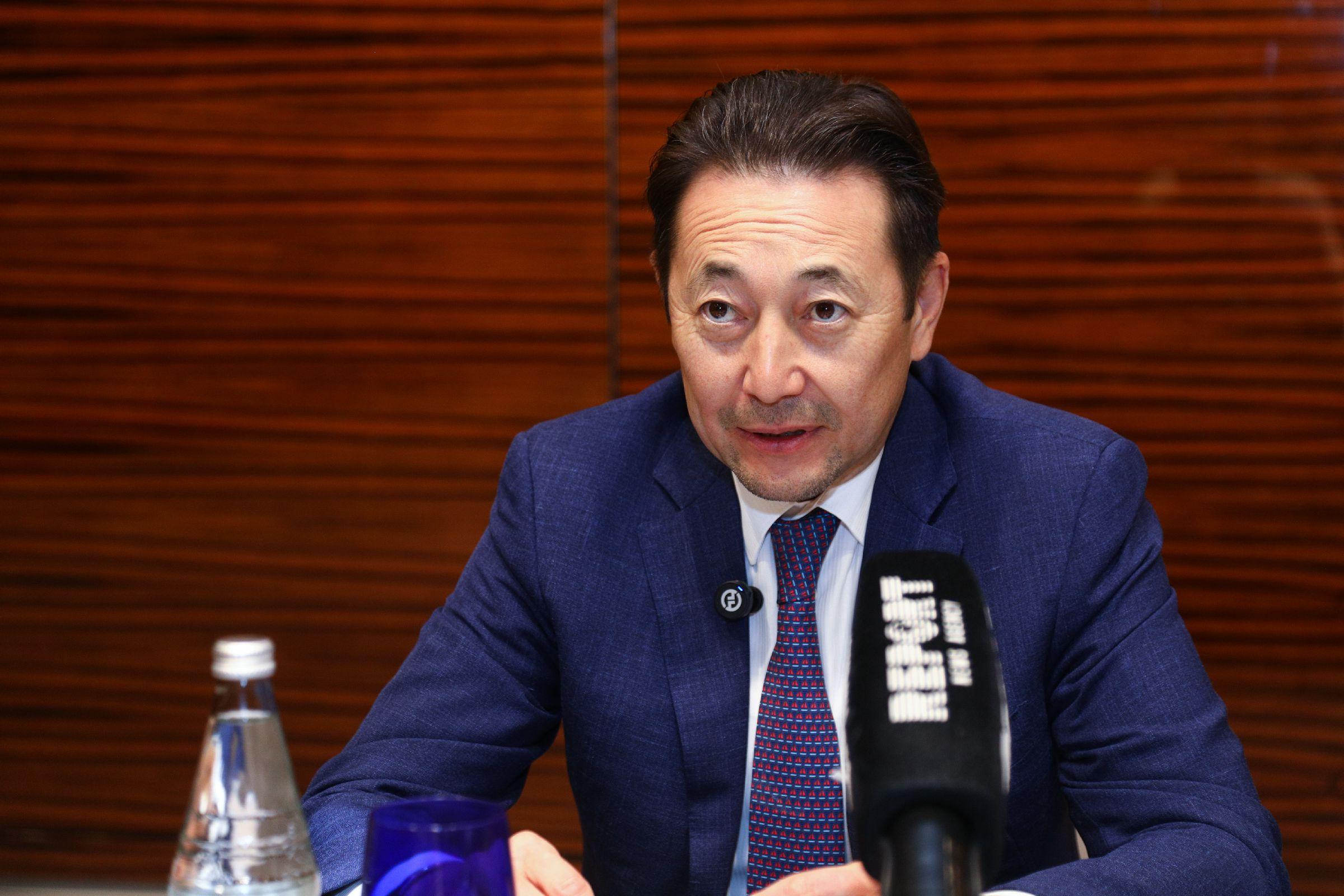
Thus, Azerbaijan's role in CICA today is characterized by a broad scope, a systematic approach, and a practical orientation, contributing to the strengthening of the organization as an effective regional platform.
- How do you assess the conceptual document presented by Azerbaijan, and which of the proposed ideas do you consider most important? What mechanisms for strengthening CICA's role in the international arena are proposed in the document, and what are the prospects for their implementation?
- The conceptual document of the chairmanship presented by Azerbaijan has received high appreciation from member states both in terms of content and strategic vision. It sets a clear and ambitious vector for CICA's development, reflecting the chairmanship's aspiration not only to strengthen the institutional foundations of the organization but also to expand its role in the international arena.
The document takes into account the current geopolitical dynamics, the actual needs of member states, and offers comprehensive yet realistic mechanisms for further advancing CICA as an effective and authoritative regional platform.
One of the priority areas is strengthening CICA's international role and visibility. In this context, the Azerbaijani chairmanship attaches particular importance to the formation of sustainable and complementary partnerships with international and regional organizations.
To date, observer status with CICA has been granted to the United Nations (UN), the Organization for Security and Cooperation in Europe (OSCE), the League of Arab States (LAS), the Parliamentary Assembly of Turkic-speaking Countries (TURKPA), and the International Organization for Migration (IOM). In addition, CICA has concluded several memoranda of understanding with key international organizations, including the Economic Cooperation Organization (ECO), the UN Office on Drugs and Crime (UNODC), the Shanghai Cooperation Organization (SCO), its Regional Anti-Terrorist Structure (SCO RATS), and the Eurasian Economic Union (EAEU).
CICA proceeds from the principle of pragmatism and seeks to consolidate collective efforts by developing synergy and constructive dialogue with partner structures. This approach lays a solid foundation for the progressive strengthening of CICA's international authority.
As a regional structure, CICA is focused on interaction with the UN system, its specialized agencies, as well as with other platforms that share the goals of peace, sustainable development, and security. The expansion of these connections and the holding of joint events are seen as an important outreach mechanism for universal organizations and contribute to a more active integration of CICA into the global dialogue.
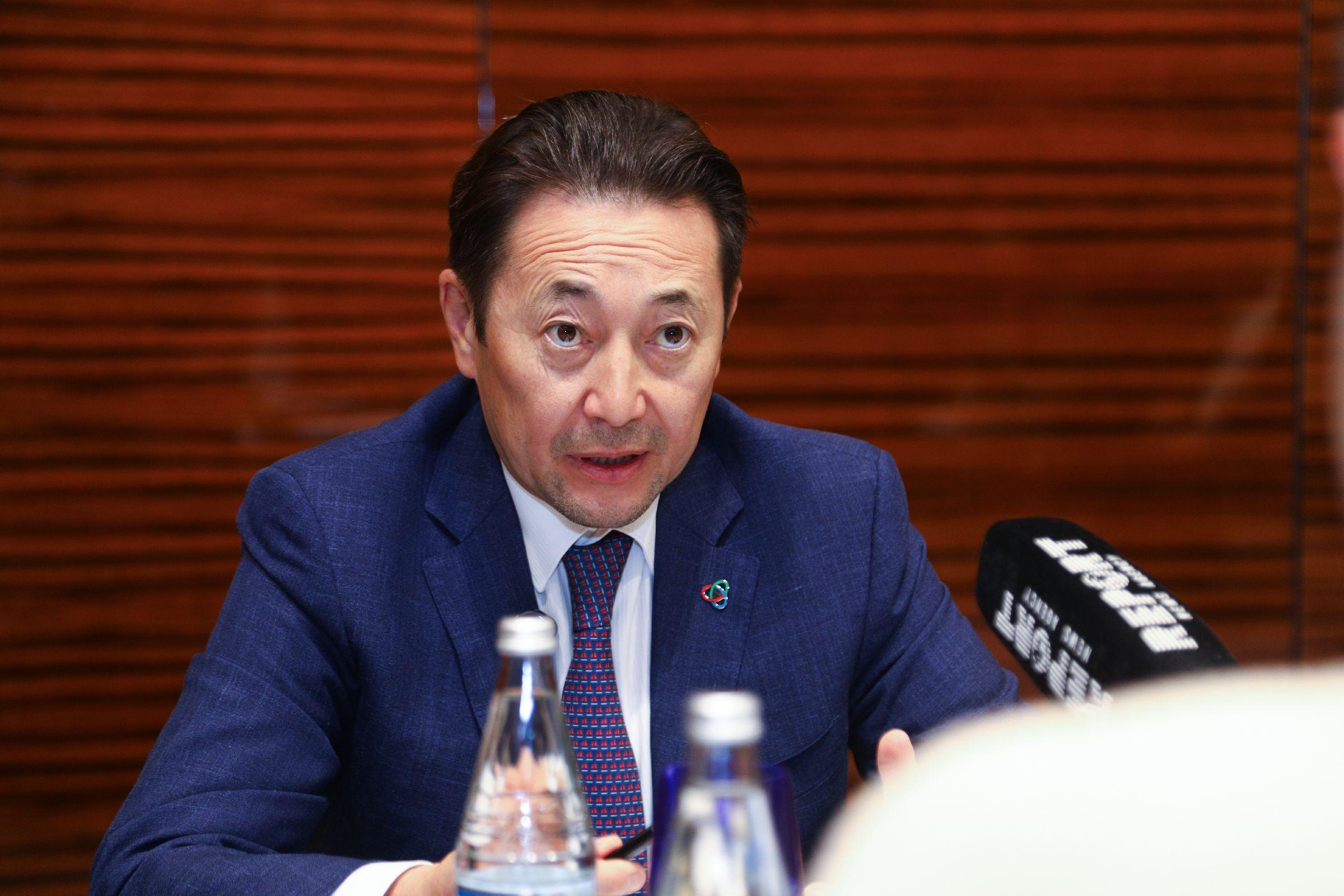
The practical effect of this approach has already been achieved. For example, in 2023, on the sidelines of the UN General Assembly High-Level Week in New York, a side event was organized with the participation of UN Deputy Secretaries-General - Haoliang Xu (UNDP), Armida S. Alisjahbana (ESCAP), and Rola A. H. Dashti (ESCWA). In 2024, as part of the 80th session of ESCAP in Bangkok, a joint side event of the CICA and ESCAP Secretariats was held on the topic: "Leveraging digital innovation for sustainable development in Asia and the Pacific."
Among the effective tools, the implementation of joint projects can be highlighted. A striking example is the launch of the first CICA Fund project: "'Advancing Wheat Cultivation for Sustainable Development in Central Afghanistan," initiated by Kazakhstan and implemented jointly with the Islamic Organization for Food Security (IOFS) with the participation of the Turkish Cooperation and Coordination Agency (TIKA). As part of the project, 300 vulnerable farmers were provided with 15 tons of elite spring wheat seeds and 45 tons of fertilizers, which contributed to strengthening food security and increasing the resilience of local communities.
All these examples confirm that under Azerbaijan's chairmanship, CICA is confidently using practical tools to strengthen its international recognition. The organization is steadily moving towards a new phase of its development, meeting the expectations of member states and the current international agenda.
– How do you see the future of CICA in the medium term? What are the main challenges facing the organization today, and what role does Azerbaijan play in overcoming them?
– In my previous answers, I elaborated on the priorities of the Azerbaijani chairmanship and the ambitious goals that currently define the progressive development of CICA. This involves deep institutional transformation, expanding the cooperation agenda with new references, strengthening consultative mechanisms, and enhancing external partnerships. All these processes have already been launched and are developing in close connection with the expectations of member states, as well as with the course outlined in the Astana Statement on CICA Transformation, adopted at the sixth Summit in 2022.
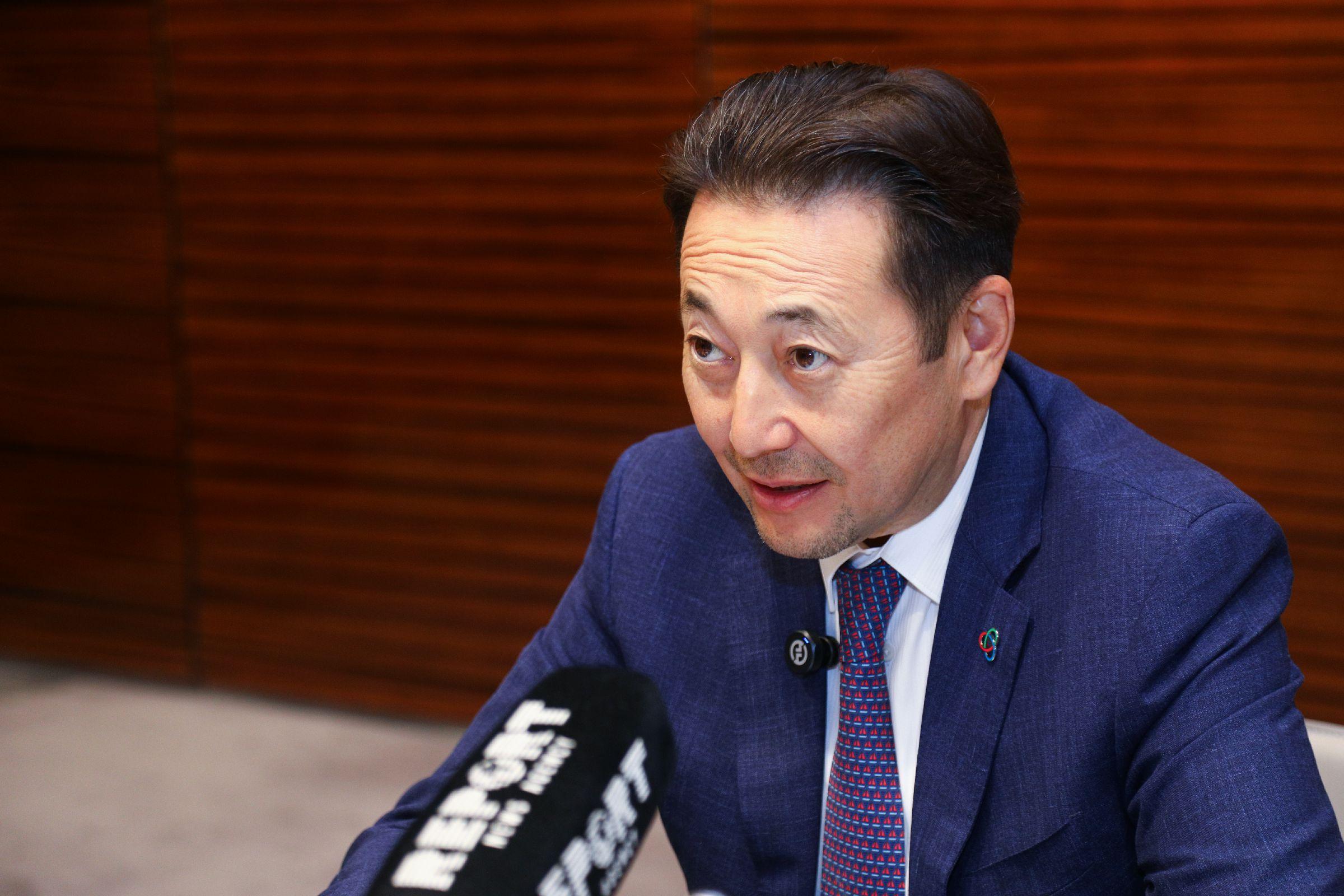
It was in this document that the political foundation of the current development stage was formulated: launching a structured, phased, and consensus-based process of transforming CICA into a full-fledged regional international organization, defining a broad spectrum of future cooperation, strengthening the institutional architecture, promoting interconnectedness, sustainable development and balanced economic growth, as well as striving for open interaction with external partners who share CICA's goals and values.
Against this background, CICA faces significant challenges. First and foremost, maintaining internal unity and consensus amid increasing geopolitical turbulence, ensuring institutional sustainability and adaptability, implementing transformational tasks without disrupting the balance of member states' interests, and, finally, establishing CICA as an authoritative, effective, and relevant platform for pan-Asian dialogue and cooperation.
In this context, Azerbaijan's role as the chairing party takes on special significance. The country demonstrates strategic leadership, political consistency, and flexibility, offering constructive and systematic solutions. Under the aegis of Azerbaijan's chairmanship, CICA is confidently moving from a dialogue platform format to a full-fledged international organization of a new generation - flexible, pragmatic, and results-oriented.
I am convinced that with the maintenance of the current dynamics and high level of member states' involvement, in the medium term, CICA will not only successfully complete key stages of its transformation but will also establish itself as a mature, authoritative, and truly relevant pan-Asian organization, ensuring comprehensive security and development of sustainable cooperation on the continent.
Photo credit: Mirjavid Eminoghlu


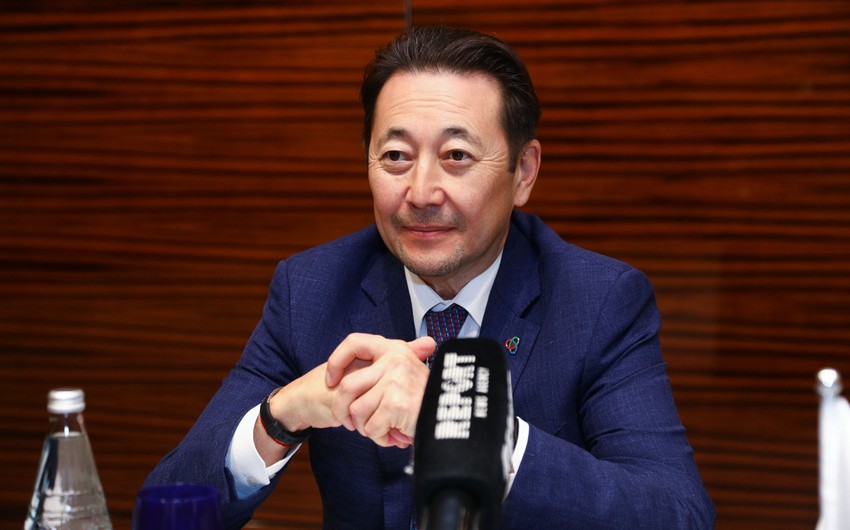 https://images.report.az/photo/9964ca6d-621e-3f24-a98c-6e2627a4c339.jpg
https://images.report.az/photo/9964ca6d-621e-3f24-a98c-6e2627a4c339.jpg

